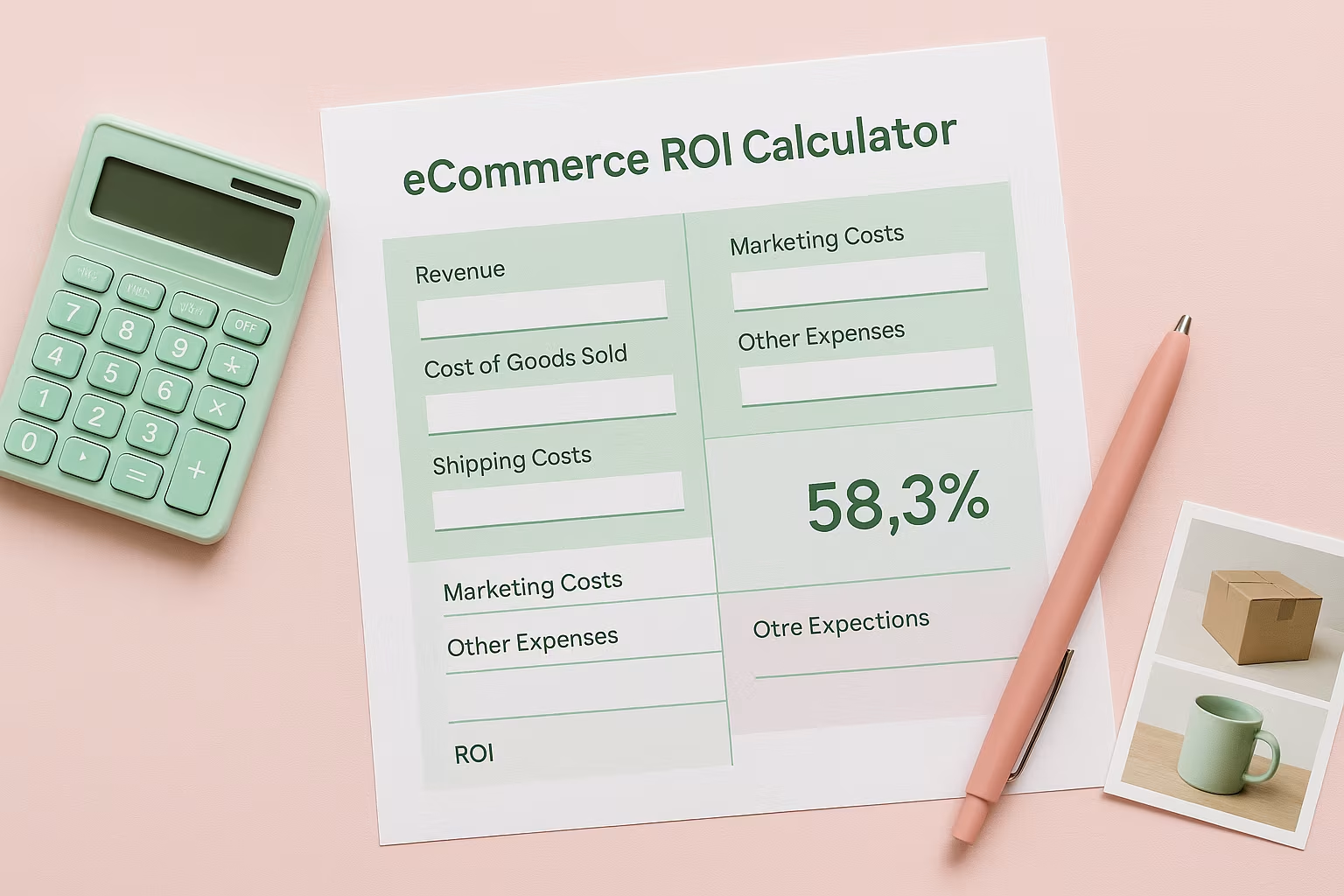What Certifications Are Needed for Essential Oils Products: Requirements to Prepare
.avif)
The essential oils market continues its rapid expansion towards multi-billion dollar status as health-conscious consumers increasingly embrace natural alternatives to synthetic products.
Entrepreneurs entering this growing industry must navigate a range of certifications needed for essential oil products.
So, what certifications are needed for essential oils products?
Certifications play a key role in building trust and validating product quality in a competitive market. Understanding the necessary certifications for your essential oils is essential to establishing credibility and ensuring customer safety.
Essential Oil Certification Requirements You Must Have
The essential oils industry faces complex regulations that vary by region and use. With oils falling between cosmetics, supplements, and household products, proper certification is key for brand legitimacy and market success.
GMP (Good Manufacturing Practices) Certification
GMP certification is fundamental for essential oil products, regardless of their intended use. This certification ensures that products are consistently produced according to quality standards and control measures.
What GMP Covers:
- Proper manufacturing facilities and equipment
- Quality control procedures
- Staff training protocols
- Ingredient sourcing documentation
- Batch testing procedures
For essential oils specifically, GMP certification verifies that the extraction, processing, and bottling procedures prevent contamination and maintain purity. When working with a private label manufacturer, always verify its GMP certification status before proceeding with production.
Pro Tip: Even if working with a GMP-certified manufacturer, request to see their most recent audit results. The difference between barely passing and exceeding GMP standards can significantly impact your product quality.
USDA Organic Certification
For brands positioning their essential oils as natural or organic, USDA Organic certification provides credibility and assurance to consumers. This certification verifies that:
- Plants were grown without prohibited synthetic fertilizers and pesticides
- No genetically modified organisms (GMOs) were used
- Proper soil and water conservation practices were followed
- No irradiation or sewage sludge was used in production
To obtain this certification for your essential oils, you must work with suppliers who source from certified organic farms and maintain proper documentation throughout the supply chain. The certification process involves inspection, documentation review, and ongoing compliance monitoring.
ISO Standards Compliance
International Organization for Standardization (ISO) standards relevant to essential oils include:
- ISO 9001: Quality management systems
- ISO 22000: Food safety management systems (relevant for ingestible oils)
- ISO 16128: Guidelines for natural and organic cosmetic ingredients
While not mandatory, ISO certification demonstrates a commitment to internationally recognized quality standards. This is particularly valuable when targeting global markets or premium customer segments who scrutinize product credentials.
Product-Specific Certifications for Different Uses of Essential Oils

Essential oils can be marketed for various applications, each with specific certification requirements.
Topical Application Certifications
When selling essential oils for skin application, consider these certifications:
Cosmetic Product Notification
In the US, the FDA requires cosmetic product notification for essential oils marketed for topical use. This isn't a certification per se, but a mandatory registration process that includes:
- Product ingredient listing
- Manufacturing facility registration
- Proper labeling compliance
Dermatologically Tested
While optional, "dermatologically tested" certification can boost consumer confidence, especially for essential oils marketed for sensitive skin. This certification requires clinical testing by qualified dermatologists who evaluate skin reactions to your products.
Aromatherapy Certifications
For essential oils marketed specifically for aromatherapy:
Aromatherapy Trade Council (ATC) Certification
The ATC certification verifies the purity and quality of essential oils used in aromatherapy. Products with this certification must:
- Contain 100% pure essential oils (no synthetics)
- Meet specific chemical composition requirements
- Pass gas chromatography testing
- Include proper safety information and usage guidelines
Ingestible Essential Oil Certifications
If marketing essential oils for internal use (such as flavoring or supplements), additional certifications are required:
FDA GRAS Status
"Generally Recognized As Safe" (GRAS) status must be established for essential oils intended for ingestion. Only certain essential oils qualify, including:
- Lemon
- Orange
- Peppermint
- Ginger
This status requires substantial scientific evidence of safety and expert consensus. Working with established private label supplement manufacturers familiar with GRAS requirements can simplify this process.
NSF Certification
NSF International certification verifies that products meet public health and safety standards. For ingestible essential oils, this certification:
- Confirms product purity
- Validates manufacturing processes
- Ensures proper handling procedures
- Verifies adherence to label claims
Environmental and Ethical Certifications for Essential Oil Products
Beyond regulatory compliance, ethical and environmental certifications can significantly enhance brand value for conscious consumers.
Cruelty-Free Certification
Organizations like Leaping Bunny and PETA offer cruelty-free certifications that verify no animal testing was conducted during product development. This certification is increasingly important to consumers, with studies showing over 70% of shoppers consider cruelty-free status when making purchasing decisions.
Sustainability Certifications
Fair Trade Certification
Fair Trade certification ensures that farmers and workers involved in growing plants for essential oils receive fair compensation and work under ethical conditions. This certification addresses:
- Fair pricing structures
- Safe working conditions
- Environmental sustainability
- Community development initiatives
Rainforest Alliance Certification
For essential oils sourced from tropical regions, Rainforest Alliance certification verifies that production methods protect forest ecosystems and wildlife habitats. This certification resonates strongly with environmentally conscious consumers.
Quality Testing and Documentation Requirements
Beyond formal certifications, essential oil products require specific testing and documentation.
Gas Chromatography/Mass Spectrometry (GC/MS) Testing
GC/MS testing identifies the chemical components in essential oils, verifying purity and detecting contaminants or adulterants. Professional essential oil brands routinely perform this testing and make results available to consumers.
When launching your essential oil line, partner with suppliers who provide GC/MS test results for each batch.
Certificate of Analysis (COA)
A Certificate of Analysis documents the testing results for each essential oil batch, including:
- Chemical composition breakdown
- Purity percentage
- Density and refractive index
- Country of origin
- Extraction method
- Harvest date
Providing this level of transparency builds consumer trust and positions your brand as premium within the marketplace.
Labeling Requirements for Essential Oil Products
Proper labeling is critically important for compliance and consumer safety.
Required Label Elements
Essential oil labels must include:
- Product name and botanical name
- Net quantity
- Company information
- Batch number
- Manufacturing date
- Expiration date
- Safety warnings
- Usage instructions
- Ingredient list
For essential oils marketed for specific uses (cosmetic, aromatherapy, etc.), additional labeling requirements may apply.
Claim Restrictions
Be extremely cautious about the claims made on essential oil labels and marketing materials. Prohibited claims include:
- Disease treatment or prevention statements
- Unsubstantiated health benefits
- Misleading terminology about purity or quality
- Therapeutic claims without proper substantiation
Violating these restrictions can result in regulatory actions, including product recalls and fines.
Navigating International Certification Requirements

For brands planning to sell internationally, certification requirements vary by region.
European Union Requirements
The EU has stringent requirements for essential oils, including:
- REACH registration for chemical substances
- Compliance with the Cosmetic Products Regulation (when marketed for cosmetic use)
- Proper allergen labeling
- Safety assessment documentation
- Product Information File (PIF) maintenance
Canadian Requirements
Canada requires:
- Natural Product license for therapeutic essential oils
- Cosmetic Notification Form for cosmetic applications
- Bilingual labeling (English and French)
- Compliance with the Consumer Packaging and Labelling Act
Asia-Pacific Markets
Asian markets often have unique requirements, such as:
- CFDA registration for China
- ASEAN Cosmetic Directive compliance for Southeast Asia
- Japan's Ministry of Health, Labour and Welfare approvals
When expanding internationally, consider working with region-specific consultants or using established white label products already compliant with local regulations.
Selecting Certified Manufacturers and Suppliers
The easiest way to navigate complex certification requirements is to partner with established suppliers who already maintain the necessary certifications.
Questions to Ask Potential Manufacturers
When vetting essential oil manufacturers, ask:
- What certifications do you currently hold?
- Can you provide copies of certification documents?
- What testing do you perform on each batch?
- How do you verify the quality of source materials?
- What documentation do you provide with each order?
Reputable manufacturers will readily provide this information and welcome your due diligence.
The Value of Turn-Key Solutions
For entrepreneurs seeking simplified entry into the essential oils market, turn-key fulfillment solutions offer significant advantages:
- Pre-certified products ready for market
- Regulatory compliance expertise
- Documentation and testing have already been completed
- Streamlined labeling and packaging
- Simplified logistics and fulfillment
These partnerships allow you to focus on building your brand and marketing strategy while leaving technical compliance aspects to experienced professionals.
Starting Your Certified Essential Oils Business
With an understanding of certification requirements, you're ready to launch your essential oils business.
Developing a Certification Strategy
Based on your target market and product positioning, determine which certifications provide the most value:
- Premium brands benefit from comprehensive certification portfolios
- Entry-level brands may prioritize only mandatory certifications
- Specialized brands should focus on niche-specific certifications
Budgeting for Certification Costs
Certification expenses vary widely:
- GMP certification: $5,000-$15,000
- USDA Organic: $1,000-$3,000 annually
- ISO certification: $5,000-$25,000
- Product testing: $200-$1,000 per batch
Factor these costs into your pricing strategy and business plan.
Building Consumer Trust Through Certification
In the essential oils market, certifications do more than ensure compliance—they build consumer confidence and brand value.
Transparent Communication
Make certification information readily available to consumers through:
- Product labels
- Website certification pages
- Marketing materials
- QR codes linking to certificates and test results
Education-Based Marketing
Educate consumers about what certifications mean and why they matter. This approach positions your brand as transparent and customer-focused while highlighting the value of your products compared to uncertified alternatives.
Professional Techniques: How to Ensure Your Essential Oils Are Truly Pure
The true quality of your essential oils lies in how and where they are sourced. Establishing direct relationships with farmers or cooperatives, rather than relying on third-party suppliers, ensures transparency in farming practices and the true origin of your ingredients.
This deeper connection gives you control over sustainability and purity.
Also, pay attention to the extraction method. Steam distillation typically results in purer oils compared to solvent-based methods, which can affect potency and chemical composition.
Sourcing oils from small batch distillers can give your brand a premium edge, offering fresher, more potent products that stand out in the market.
Elevate Your Essential Oils Business with Proper Certification
Success in the essential oils market requires navigating a complex certification landscape. While challenging, these certifications protect consumers, ensure quality, and build brand credibility.
Ready to launch a certified essential oils brand without the regulatory headaches? Consider partnering with established experts who handle certification requirements.
The essential oils market favors brands that prioritize quality, safety, and transparency. Embracing the certification process builds a strong foundation for long-term success and customer loyalty.
FAQ
Related blogs

Price Elasticity Of Demand Calculator: Predict Revenue Impact in Seconds

Chargeback ROI Calculator: Predict Your Savings and ROI in Under 10 Seconds

Break-Even ROAS Calculator: Find Out What You Can Afford to Spend on Ads


